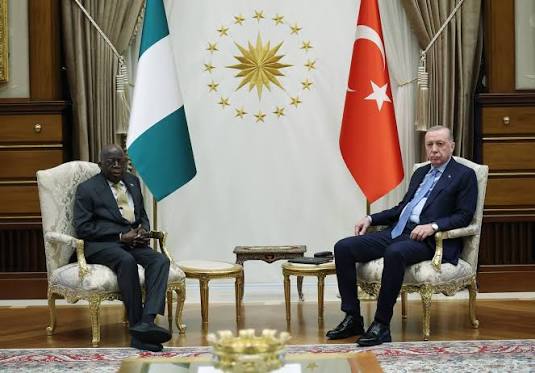China responded on Friday to United States President Donald Trump’s tariff hikes by raising its own tariffs on American goods from 84% to 125%, according to the Chinese finance ministry.
The ministry said, “Even if the U.S. continues to raise tariffs, it will no longer be economically meaningful and will go down as a joke in the history of the world economy,” according to a statement translated by CNBC.
“With tariffs now at these levels, there is effectively no market left for U.S. imports into China,” the statement said.
It added, “If the U.S. government continues to raise tariffs on China, Beijing will simply disregard them.”
The Trump administration stated on Thursday that U.S. tariffs on Chinese imports have now reached a combined 145%.
This includes a new executive order raising reciprocal tariffs on Beijing to 125%, on top of a 20% tariff linked to fentanyl-related products imposed in February and March.
“This is the end of the escalation in terms of bilateral tariff rates. Both China and the US have sent clear messages, there is no point of raising tariffs further,” said Zhiwei Zhang, president and chief economist at Pinpoint Asset Management.
The next step, according to Zhang, is to assess the impact on economic activity in both the U.S. and China. He noted there is no indication that either government is preparing to resume negotiations or take steps to prevent significant disruptions to global supply chains.
Unlike in earlier rounds of retaliation, Beijing has so far held back from introducing new export controls or expanding its “unreliable entity list” to include more American companies—measures that would impose additional restrictions on their operations in China.
Despite the recent escalation, a spokesperson for China’s commerce ministry stated in a separate release on Friday that Beijing remains open to negotiations with the U.S., but only on the basis of equality.
Prospects for a trade deal have dimmed quickly, as Beijing has responded over the past week with tit-for-tat tariffs and broad restrictions targeting American businesses.
“It’s unfortunate that the Chinese actually don’t want to come and negotiate, because they are the worst offenders in the international trading system,” U.S. Treasury Secretary Scott Bessent told Fox Business on Wednesday after China’s raised tariffs to 84%.
“They have the most imbalanced economy in the history of the modern world, and I can tell you that this escalation is a loser for them,” Bessent said.









